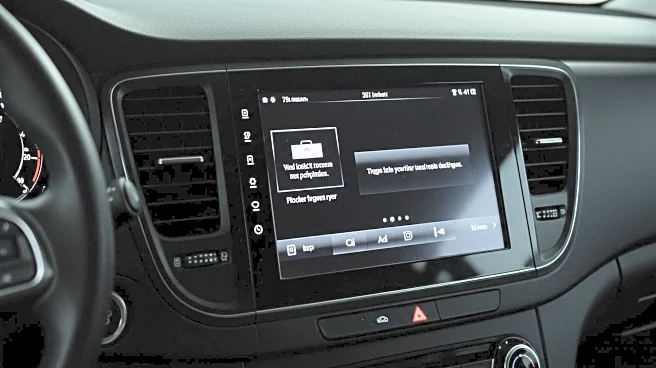What's Happening?
A Toyota RAV4 owner expressed frustration on TikTok over a subscription demand from his car's infotainment system, sparking a debate among users. The owner, Travis, posted a video showing a 'Your session has expired' message on his car's touchscreen, which he believed was a tactic by Toyota to force him into paying for services. However, commenters and Toyota owner forums suggest the message is a standard security prompt related to the Toyota Drive Connect system, requiring users to re-enter their PIN for account verification. This security check occurs roughly every six months, regardless of subscription status. Despite Travis's belief, many users explained that the message is not a subscription demand but a security measure.
Why It's Important?
The incident highlights growing consumer frustration with the automotive industry's shift towards subscription-based services for features that were once standard. This trend has led to criticism from consumers who feel they are being charged repeatedly for features in vehicles they already own. The debate also underscores the importance of understanding vehicle technology and the potential for misunderstandings between consumers and manufacturers. As automakers increasingly adopt recurring revenue models, consumer dissatisfaction may influence future industry practices and policies.
What's Next?
Travis's experience may prompt Toyota to clarify the nature of its security prompts and subscription services to avoid further consumer confusion. Additionally, the broader industry may face pressure to reconsider the balance between subscription models and consumer expectations. Automakers might need to address consumer concerns about recurring charges and ensure transparency in their service offerings. This could lead to changes in how subscription services are marketed and implemented in vehicles.
Beyond the Headlines
The situation raises ethical questions about the transparency of subscription models in the automotive industry. As more features become subscription-based, consumers may feel trapped in a cycle of ongoing payments for services they once received as part of the vehicle purchase. This shift could lead to long-term changes in consumer behavior, with potential impacts on brand loyalty and purchasing decisions. Automakers may need to navigate these ethical considerations to maintain consumer trust.










